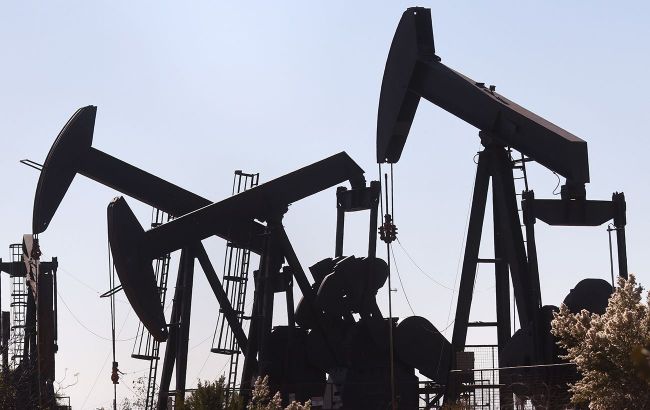Oil prices surge after Trump calls for Iran's unconditional surrender
 Photo: Trump raised oil prices (Getty Images)
Photo: Trump raised oil prices (Getty Images)
Oil prices rose by 4% due to fears that the Iran-Israel conflict could disrupt supplies. President Donald Trump demanded Iran's "unconditional surrender" and warned of a possible strike on the country’s leader–Ayatollah Ali Khamenei, according to Bloomberg.
Brent crude oil costs $76.70 per barrel, West Texas Intermediate oil – $75.20 per barrel.
Brent crude oil prices have risen by approximately $10 per barrel over the past two weeks. Last week, Israel began attacks on Iran. Assumptions about possible US involvement in the conflict have heightened concerns about disruptions to Middle Eastern supplies.
Three officials reported that US military forces are deploying additional fighter jets to the region to bolster their strength.
"Trump’s demand for Iran’s “unconditional surrender” and threats against its supreme leader signal diplomacy is off the table,” said Charu Chanana, chief investment strategist at Saxo Markets Ltd. in Singapore. A “worst-case scenario blockade of Hormuz could send prices sharply higher," she added.
Price forecast
Analysts stated that the market is mainly concerned about supply disruptions in the Strait of Hormuz, through which one-fifth of the world’s seaborne oil is transported.
Iran is the third-largest oil producer in OPEC, producing about 3.3 million barrels of crude oil per day, but the spare capacity of producers in the Organization of the Petroleum Exporting Countries and their allies can easily cover this volume.
Fitch analysts stated that they expect the geopolitical risk premium in oil prices to remain at around $5–10.
"Material disruption to Iran's production or export infrastructure would add more upward pressure to prices. However, even in the unlikely event that all Iranian exports are lost, they could be replaced by spare capacity from OPEC+ producers ... around 5.7 million barrels a day," said Fitch analysts in a client note.
Iran’s crude oil export infrastructure has not yet been affected, and most of the impact has been on shipping. About a third of the world’s oil is produced in the Middle East, and a larger conflict could lead to even greater price increases.
Military actions have shaken global markets, investors sought refuge in assets like gold, and oil volatility has risen to a three-year high. The Brent prompt spread surged, indicating fears of supply cuts, and options became more bullish than after Russia's invasion of Ukraine in 2022.
Gasoline prices in Ukraine
The main factor influencing fuel prices in Ukraine is global oil prices, as Ukraine has imported nearly the entire volume of fuel since the beginning of the war.
Retail prices for gasoline and diesel in Ukraine have already risen after the surge in global prices.

